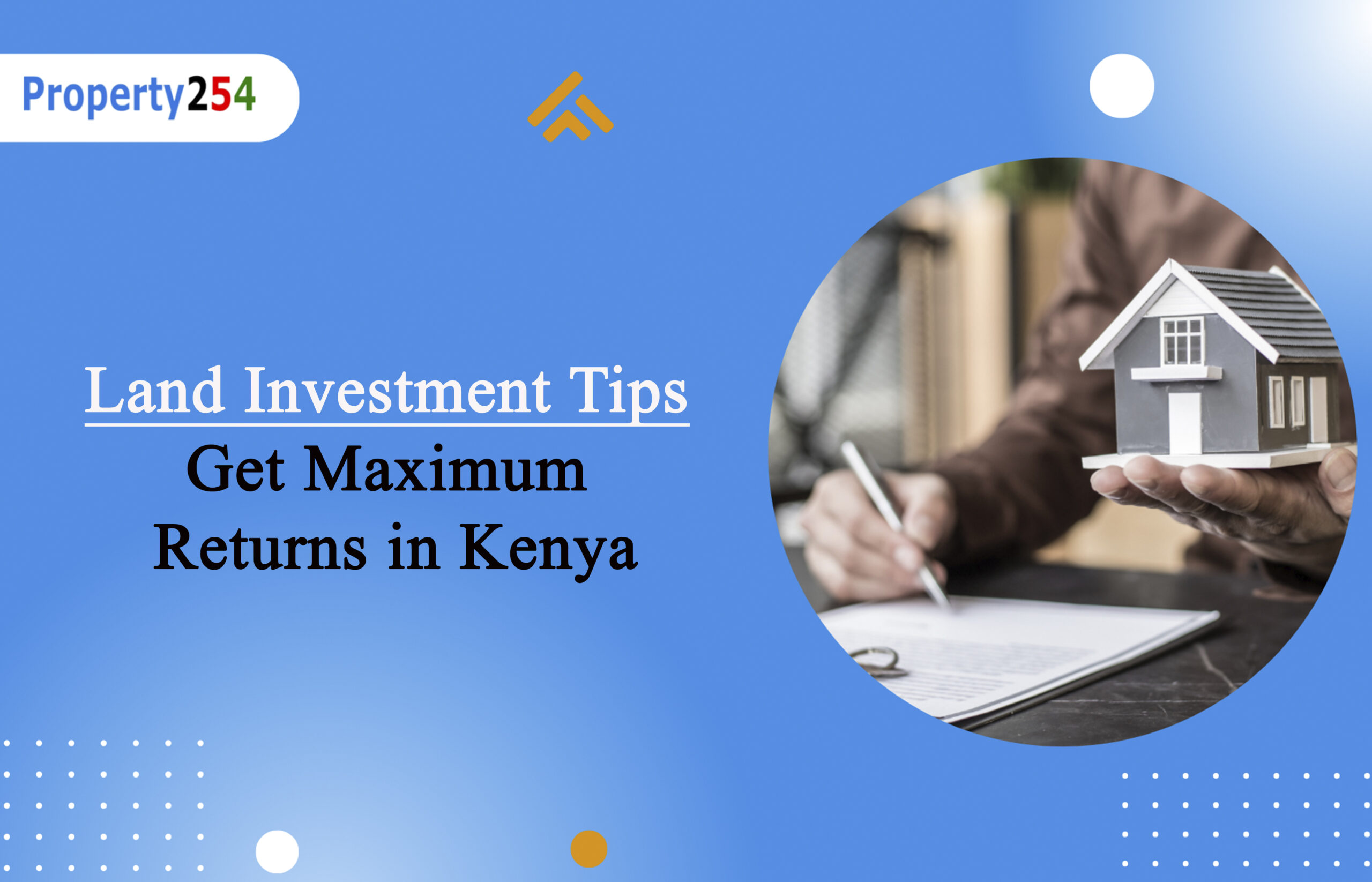Buying land in Kenya is a good investment strategy for good returns. The cost of purchasing land will vary from location to location, but the bottom line is with time, the value of every piece of land appreciates in value. As a landowner you not only get financial security but also peace of mind.
Read: Top factors to consider before investing in property in Kenya
Once you buy land, there are two ways to generate cash. This can be through active utilization of the land or holding the land and wait for it to appreciate.
Below, we evaluate in detail both passive and active ways that you can use your land to generate value:
1. Buy and wait for appreciation.
2. Develop the land.
3. Divide into several plots and sell.
4. Lease the land
5. Farm on the land.
1. Buy and Hold
This is the most common way real estate offers a profit as Land appreciates over time. Thus, its near guaranteed that if you buy land and sell it later, you are bound to make returns on it by buying and holding onto it. appreciation in value happens when new developments happen like roads, schools, administrative offices or other infrastructural developments occur close or next to your land.
The only challenge is that the amount of appreciation is beyond your control.
Related: The Key Steps in the Process of Buying Land in Kenya
2. Develop It
Depending on the location of the land, you may develop it to generate active income including building rental properties. The rental properties generate income while the value of the land keeps appreciating.
3. Subdivide and Sell
If you purchase a big piece of land, you can get returns by subdividing the land and sell off the pieces to other individual buyers. Subdivided land is more marketable as its easier to find a buyer for a smaller, more affordable parcel of land, as opposed to selling a bigger piece. Currently, Malindi is experiencing growth and land is still relatively cheap. You may but 10 acres for Ksh 1,000,000 and subdivide to one-acre portions. You can then sell an acre at Ksh 200,000 and make at least half a million shillings after you take out subdivision and other expenses.
Read: Ultimate step by step guide to land subdivision in Kenya: Guide to doing subdivisions
4. Lease It
If the land is located strategically, there are businesses looking to lease land whether on a monthly and yearly basis. The lease could be for commercial purposes like setting up businesses like petrol stations, car wash, garage etc. I have seen road contractors looking for land to lease when setting up sites to operate from. Other lease opportunities include billboard rentals and cell towers for companies like Safaricom.
If the land is in a quarry, you may let companies extract building materials and pay a royalty to you. For agricultural land and you lack the necessary background or experience in farming, you may lease the land to an experienced farmer.
5. Farm on it
If you have farming skills, putting your land into agricultural use can be a very lucrative business as the produce will always yield good income in the market. This is because food will always be in demand.
The final takeaway
Investing in land in Kenya remains one of the best investment decisions you can make. There are various avenues as above on how to generate returns and I hope you find one that works for you.
Whatever way you decide to profit from owning land, certain strategies will help you succeed.
Be financially prepared: Real estate is a capital intensive investment. You thus need to ensure you plan your finances well. As it takes time to sell land, buy land that you do not have to sell quickly.
Get to know the local area: It has always been said that the three most important factors in real estate are location, location, location. This still holds to date. Whether it’s from a physical visit or starting off with online research, do your best to know the local market . Find a few real estate agents in the area as well who can advise you on property prices.
Keep things simple: A simple strategy always takes you a long way in real estate investing in Kenya. If you are starting off in real estate, it’s best to start small and then grow steadily and you gain more experience.

Leave a Reply